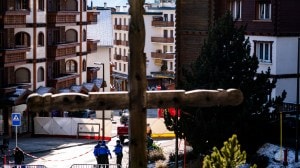Two men and a continent
The careers of Africa8217;s most prominent politicians have striking similarities but Robert Mugabe and Nelson Mandela took their countries on different paths, writes Martin Meredith

The careers of two of Africa8217;s most prominent politicians 8212; Robert Mugabe and Nelson Mandela 8212; have striking similarities. Both were born in an era when white power prevailed throughout Africa, Mandela in 1918, Mugabe in 1924. Both were products of the Christian mission school system. Both attended the same university, Fort Hare in South Africa. Both were drawn into the struggle against white minority rule, Mandela in South Africa, Mugabe in neighbouring Rhodesia, now Zimbabwe. Both advocated violence to bring down white-run regimes. Both endured long terms of imprisonment, Mandela, 27 years, Mugabe, 11. Both suffered the anguish of losing a son while in prison, and both were refused permission to attend the funeral.
But whereas Mandela used his prison years to open a dialogue with South Africa8217;s white rulers in order to defeat apartheid, Mugabe emerged from prison bent on revolution, determined to overthrow white society by force.
Even after seven years of a civil war 8212; Mugabe, having gained power through elections, expressed disappointment that he had been denied the kind of power that military victory would have given him. For Mugabe, power was not the means to an end but the end itself.
This year, Mandela celebrates his 90th birthday, acclaimed around the world as one of the great leaders of his time, while Mugabe battles on grimly after 28 years of power, like a prizefighter whose eyes are blinded by his own blood 8212; and the blood of many others. The early years of
Mugabe8217;s rule seemed full of promise. Mugabe appeared as a model of moderation after winning the 1980 election, pledging to work for reconciliation and racial harmony.
Western governments lined up with offers of aid. Given large increases in commodity prices, white farmers 8212; the backbone of the economy 8212; became ardent supporters of Mugabe8217;s government and his ruling ZANU-PF party.
But Mugabe8217;s black political opponents fared less well. Within weeks of gaining power, Mugabe set out to crush political opposition in Matabeleland province and establish a one-party state. The military campaign he unleashed there in the 1980s culminated in mass murder but it gave Mugabe the total control he had always sought.
By the 1990s, Mugabe had become an irascible dictator, brooking no opposition, contemptuous of the law and human rights, surrounded by sycophantic ministers and indifferent to the incompetence and corruption around him. Whatever good intentions he had started out with had long since faded.
As opposition to his rule mounted, Mugabe struck back with increasing ruthlessness. His first target was white farmers who, worried about title to their land, had shown signs of supporting a new opposition coalition, the Movement for Democratic Change. Hoping to bolster his popularity, Mugabe sent gangs of ZANU-PF activists to seize white-owned farms and distribute them to his supporters.
His ultimate objective, however, was to crush all opposition and remain in power.
Zimbabwe has been reduced to a bankrupt and impoverished state.But Mugabe fights on. Violence has been Mugabe8217;s stock in trade for more than 30 years.
It is not a pleasant prospect for Zimbabweans yearning for something better.
- 01
- 02
- 03
- 04
- 05































